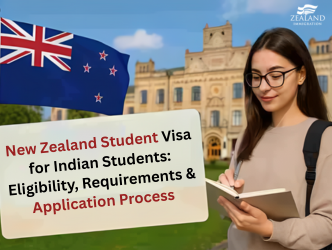- info@zealandimmigration.net
- |
- +91 9736492364
- |
- 01725007958
- |
- Monday to Saturday 9AM – 6PM
Canada Education System
- Home
- |
- Canada Education System
The Canada Education System: A Complete Overview for Aspiring Students
Canada’s education system stands as one of the most respected worldwide, known for its high standards, inclusivity, and emphasis on research and innovation. Whether you’re considering studying in Canada or are simply curious about how the system works, this guide will walk you through its structure, advantages, and what makes it unique.
What Makes the Canada Education System Stand Out?
- Rigorous Standards and Global Recognition: Canada’s education system is consistently ranked among the best in the world. Canadian students perform well in global assessments, and Canadian universities are highly regarded for their research capabilities. Degrees from Canadian institutions are recognized globally, giving graduates a competitive edge in the job market.
- Accessibility and Inclusiveness: Education in Canada is accessible to people from all walks of life, with a strong focus on equity and inclusion. The Canadian education system encourages diverse perspectives, ensuring that all students regardless of background, culture, or socioeconomic status have the opportunity to succeed. This inclusive approach fosters a well-rounded, globally aware generation of learners.
- Multilingual Education: With two official languages - English and French, Canada offers a unique bilingual education environment. This provides students with the chance to become proficient in both languages, opening doors to more international opportunities and enhancing cultural competency.
Key Features of the Canada Education System
- Decentralized Structure: Canada’s education system is governed primarily at the provincial and territorial levels, meaning each province or territory has control over its curriculum and policies. This decentralization allows for tailored education experiences based on regional needs and cultural differences while maintaining overall national educational standards.
- Emphasis on Student-Centered Learning: The Canadian education system is known for its student-centered approach. Teachers encourage critical thinking, creativity, and problem-solving, enabling students to think independently and challenge existing ideas. Classrooms are typically smaller, allowing for individualized attention and fostering a collaborative learning environment.
- Focus on Holistic Development: Canada values not just academic achievements, but the overall well-being of its students. Alongside rigorous academics, Canadian schools promote mental health, sports, and extracurricular activities. This balance ensures that students develop both intellectually and personally.
Breakdown of the Canada Education System
1. Primary and Secondary Education (Kindergarten to Grade 12)
Education in Canada is free for Canadian citizens and permanent residents. It begins with Kindergarten (typically at age 5) and extends through to Grade 12 (ages 17-18).
- Elementary School (K-6): This stage focuses on foundational skills in mathematics, literacy, science, and social studies.
- Middle School (Grades 7-8): A transitionary phase, where students start to take more specialized subjects.
- High School (Grades 9-12): Students start preparing for higher education or vocational training, and subjects become more specialized. Upon completion of Grade 12, students receive their High School Diploma, which is required for entry into post-secondary institutions.
2. Post-Secondary Education
Post-secondary education in Canada includes both colleges and universities:
-
Colleges: Primarily offer diploma and certificate programs that are career-focused. These programs are typically shorter (1-3 years) and often include practical training in fields like healthcare, technology, and trades.
- Universities: Offer bachelor’s, master’s, and doctoral degrees. Canadian universities are renowned for their research, and many students engage in innovative projects. Graduate programs often have a strong emphasis on research and offer specialized degrees in fields like engineering, medicine, and business.
3. Vocational Education and Training
Canada also offers vocational programs, which are designed for students looking to enter the workforce with specific skills in industries like construction, hospitality, and IT. These programs are provided through technical institutes and community colleges and are usually shorter than university programs.
How Does Canada Ensure Quality in Education?
- Consistent National Standards: Although education is a provincial responsibility, Canada maintains a set of national educational standards, ensuring a high level of consistency across the country. The curriculum across provinces focuses on foundational skills, literacy, numeracy, and critical thinking, ensuring students receive a well-rounded education.
- Teacher Quality and Support: Teachers in Canada are highly qualified, with strict standards for certification and continuous professional development. Teachers are trained to adapt to diverse learning styles, ensuring every student receives a personalized education.
- Focus on Research and Innovation: Canadian universities are leaders in global research and innovation, providing students with opportunities to engage in groundbreaking research across a wide variety of fields. With government funding and industry partnerships, Canadian universities are at the forefront of technological advances, medical research, and environmental sustainability.
Costs and Funding for Education in Canada
- Primary and Secondary Education: For Canadian residents, public primary and secondary education is free. International students may be required to pay tuition fees, which typically range from CAD $5,000 to CAD $15,000 per year, depending on the province.
- Post-Secondary Education: Tuition fees for universities and colleges vary by program and institution. On average, tuition fees for undergraduate programs range from CAD $7,000 to CAD $29,000 per year for international students. Graduate programs generally cost more, especially for research-heavy fields. However, financial assistance in the form of scholarships, grants, and student loans is widely available.
- Scholarships and Financial Aid: Canada offers a variety of scholarships for both domestic and international students. Canadian scholarships are offered by universities, provincial governments, and private organizations. Some of the most prestigious ones include the Vanier Canada Graduate Scholarships and Canadian Commonwealth Scholarships.
Opportunities for International Students
- Work While Studying: International students in Canada can work part-time (up to 20 hours per week during the academic term and full-time during breaks). This helps them gain practical experience while supporting their living expenses.
- Post-Graduation Work Permits: After completing their studies, international students may be eligible for a Post-Graduation Work Permit (PGWP), which allows them to work in Canada for up to three years. This is an excellent opportunity to gain Canadian work experience and explore potential pathways to permanent residency.
- Pathways to Permanent Residency: Canada offers several immigration pathways for international students, such as the Express Entry Program and the Canadian Experience Class. These programs prioritize skilled workers who have Canadian education and work experience, making it easier for international graduates to settle in Canada.
Zealand Immigration India - Your Guide to Canadian Education
At Zealand Immigration India, we understand that studying abroad is a life-changing decision. Our team helps students explore the best opportunities within the Canada education system by assisting with course selection, university applications, visa processing, and settlement support. With our guidance, students can confidently pursue their education and career goals in Canada.
Conclusion: Why the Canada Education System Is a Top Choice
The Canada education system offers a unique blend of academic excellence, inclusivity, and opportunities for both personal and professional growth. From world-class universities to career-focused college programs, Canada has something to offer every type of student. With its focus on research, diversity, and student-centered learning, Canada continues to be a top destination for students from around the world seeking quality education.
If you are planning to study in Canada, now is the right time to take the next step. Connect with Zealand Immigration India today and begin your journey towards studying in Canada. Let us help you unlock global opportunities and shape a successful future
Office Location
- Address: 166- 167, 2nd Floor, Madhya Marg, Sector 9 C, Chandigarh, India
- Mail: info@zealandimmigration.net
- Phone: +91 9736492364, 01725007958
- Timing: Mon to Sat - 9 A.M to 6 P.M
Zealand Immigration India is your one-stop shop for everything related to visas and immigration. Whether you're looking to migrate, study, or work abroad in
Looking for Inspiration
Copyright © 2026 Zealand Immigration India | All Rights Reserved.














